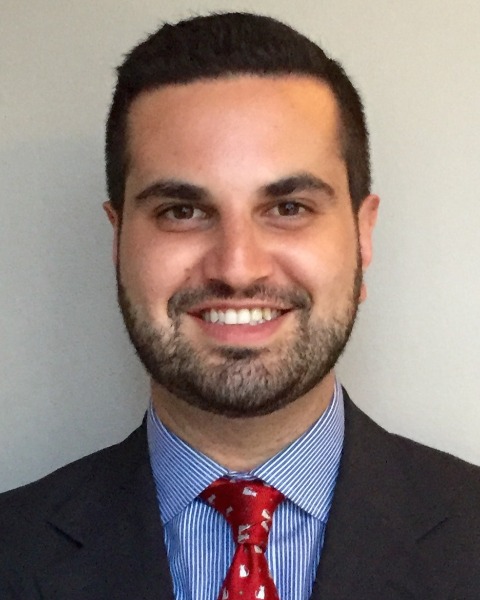Polypharmacy Reduction Strategies in PALTC
1.00 CME / 1.00 CMD Clinical / 1.00 MOC
This session will review common polypharmacy tools, including deprescribing.org, the Beers List, ARMOR (Assess, Review, Minimize, Optimize and Reassess), and the Medication Appropriateness Index. Prognostication tools such as ePrognosis, the Clinical Frailty Scale and population-based screening will be reviewed. Case-based patient scenarios will be utilized to demonstrate appropriate medication management and polypharmacy reduction based on a patient’s sex and gender, functional assessment, and estimated life expectancy. Strategies for reducing anti-psychotic, benzodiazepine, opioid and anticoagulant medication use will be discussed.
Presenters
Magdalena Bednarczyk, MD, is an Assistant Professor of Medicine at Rush University Medical Center. She is the Section Chief of Geriatric Medicine, Medical Director for Rush's Center for Excellence in Aging, Medical Director of the Rush Senior Care Clinic and the co-founder of the Functional Assessment and Individualized Recommendations (FAIR) Clinic, a sub-specialty clinic within Senior Care.
 A. Sasha Rackman, MD, is an Assistant Professor of Medicine at Rush University Medical Center. He is the Associate Program Director of the Geriatric Medicine Fellowship program, Associate Medical Director of the Rush@Home home-based primary care program, and co-founder of the Functional Assessment and Individualized Recommendations (FAIR) Clinic, a sub-specialty Frailty clinic within Rush Senior Care.
A. Sasha Rackman, MD, is an Assistant Professor of Medicine at Rush University Medical Center. He is the Associate Program Director of the Geriatric Medicine Fellowship program, Associate Medical Director of the Rush@Home home-based primary care program, and co-founder of the Functional Assessment and Individualized Recommendations (FAIR) Clinic, a sub-specialty Frailty clinic within Rush Senior Care.
Learning Objectives
- Identify medication-related needs of older adults.
- Describe current prognostication tools appropriate for decision-making in PALTC.
- Review polypharmacy reduction strategies taking into consideration a patient’s functional status and disease trajectory.
- Promote medication safety among older adults.
Credit Information
Activity Created 3/2022
Credits Available Until 3/2025
Credit Statements:
CME: AMDA – The Society for Post-Acute and Long-Term Care Medicine designates this enduring material for a maximum of 1.0 AMA PRA Category 1 Credit(s)TM. Physicians should only claim credit commensurate with the extent of their participation in the activity.
AMDA – The Society for Post-Acute and Long-Term Care Medicine for Post-Acute and Long-Term Care Medicine is accredited by the Accreditation Council for Continuing Medical Education (ACCME) to provide continuing medical education for physicians.
CMD: This self-study activity has been pre-approved by the American Board of Post-Acute and Long-Term Care Medicine (ABPLM) for a total of 1.0 clinical hours toward certification or recertification as a Certified Medical Director (CMD) in post-acute and long-term care medicine. The CMD program is administered by the ABPLM. Each physician should claim only those hours of credit actually spent on the activity.
ABIM Maintenance of Certification (MOC): Successful completion of this CME activity, which includes participation in the evaluation component, enables the participant to earn up to 1.0 Medical Knowledge MOC points and patient safety credit in the American Board of Internal Medicine’s (ABIM) Maintenance of Certification (MOC) program.
Participants will earn MOC points equivalent to the amount of CME credits claimed for the activity. It is the CME activity provider’s responsibility to submit participant completion information to ACCME for the purpose of granting ABIM MOC credit.
Visit the Continuing Education page for information on if and how you can claim credit/hours for AMDA’s education.
Disclosure Information:
The Society requires the disclosure of all speaker/faculty/planner’s relevant financial relationships; presence of off-label use of a device or medication; and discussion of any experimental, new or evolving topic prior to each accredited education activity.
If the learner perceives any bias toward a commercial product or service, advocation of unscientific approaches to diagnosis or therapy, or recommendation, treatment, or manners of practicing healthcare that are determined to have risks or dangers that outweigh the benefits or are known to be ineffective in the treatment of patients please report this to the Society’s staff.
All relevant financial relationships have been identified, mitigated, and resolved.
- The following AMDA Education Committee members have financial relationships to report: Diane Sanders-Cepeda, DO, CMD — UHC E&I Retiree Solutions: Full-Time Employee; all others have no relationships with ineligible companies.
- The speakers have no relevant financial relationships.
- AMDA staff have no relationships with ineligible companies.